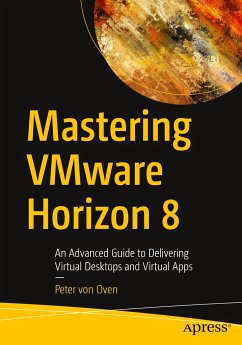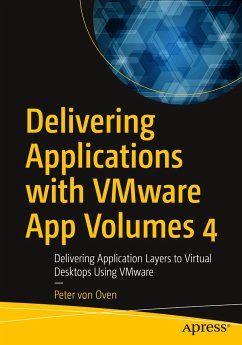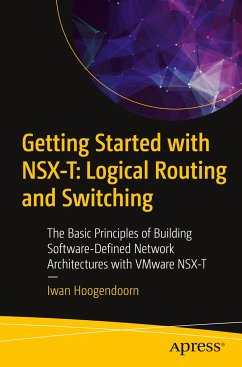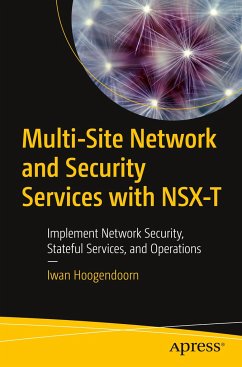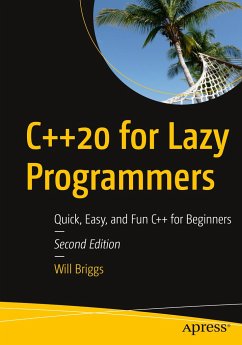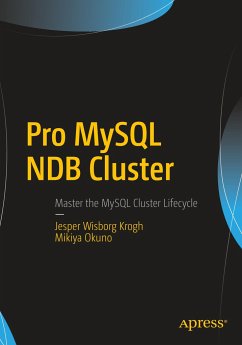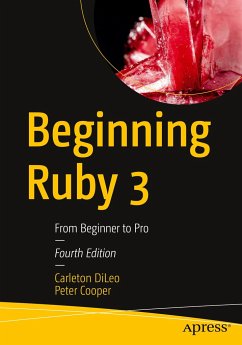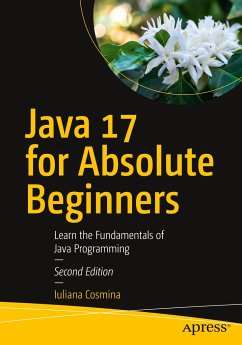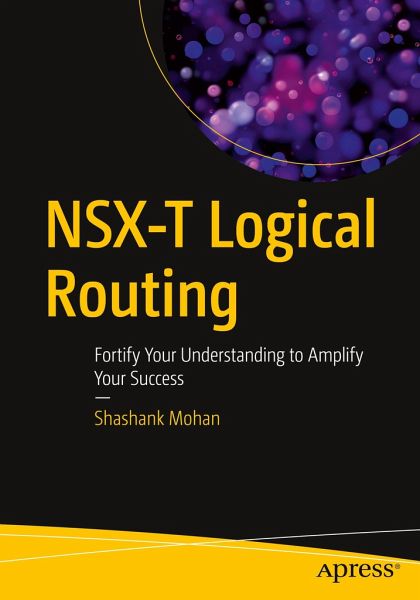
Nsx-T Logical Routing
Fortify Your Understanding to Amplify Your Success

PAYBACK Punkte
21 °P sammeln!
This book is a one-stop guide for IT professionals with a background in traditional and software-defined networks looking to expand or hone their skill set and has been developed through a combination of extensive research and testing in both development and production environments. It provides reliable information on a fundamental component of NSX-T, logical routing.A comprehensive understanding of this capability will help IT professionals with design, implementation, troubleshooting, and enhancements.The book starts with an introduction to the foundational components of the NSX-T platform a...
This book is a one-stop guide for IT professionals with a background in traditional and software-defined networks looking to expand or hone their skill set and has been developed through a combination of extensive research and testing in both development and production environments. It provides reliable information on a fundamental component of NSX-T, logical routing.
A comprehensive understanding of this capability will help IT professionals with design, implementation, troubleshooting, and enhancements.
The book starts with an introduction to the foundational components of the NSX-T platform and how NSX-T fits into the software-defined data center. The focus then moves to tunnel endpoints, which is a critical aspect of the NSX-T platform, and the differences between overlays and underlays are explained. Once the basics are covered, it provides a detailed description of how NSX-T components communicate.
Next, the book introduces logical routing and its componentsand provides a better understanding of how these components function with one another. Several packet walks are illustrated to explain NSX-T logical routing behavior in different scenarios. After mastering logical routing, it explains how NSX-T ensures data plane availability, which is explored at various layers of NSX-T.
Finally, the book explores the concepts and intricacies of routing into and out of the NSX-T environment. It deep dives into utilizing the Border Gateway Protocol (BGP), Open Shortest Path First (OSPF), and Static Routing.
What You Will Learn
Know how VMware NSX-T endpoints communicate
Understand how NSX-T logical routing works Know how NSX-T provides high availability for the data plane Understand how NSX-T operates with static and dynamic routing protocolsConfigure the platform
Who This Book Is For
Readers with an intermediate to advanced skill set who wish to further their knowledge, those who focus on datacenter technology, those planning to move to a software-defined datacenter to transform the way their current datacenter works, and anyone looking to learn about VMware NSX-T and how it operates
A comprehensive understanding of this capability will help IT professionals with design, implementation, troubleshooting, and enhancements.
The book starts with an introduction to the foundational components of the NSX-T platform and how NSX-T fits into the software-defined data center. The focus then moves to tunnel endpoints, which is a critical aspect of the NSX-T platform, and the differences between overlays and underlays are explained. Once the basics are covered, it provides a detailed description of how NSX-T components communicate.
Next, the book introduces logical routing and its componentsand provides a better understanding of how these components function with one another. Several packet walks are illustrated to explain NSX-T logical routing behavior in different scenarios. After mastering logical routing, it explains how NSX-T ensures data plane availability, which is explored at various layers of NSX-T.
Finally, the book explores the concepts and intricacies of routing into and out of the NSX-T environment. It deep dives into utilizing the Border Gateway Protocol (BGP), Open Shortest Path First (OSPF), and Static Routing.
What You Will Learn
Know how VMware NSX-T endpoints communicate
Understand how NSX-T logical routing works Know how NSX-T provides high availability for the data plane Understand how NSX-T operates with static and dynamic routing protocolsConfigure the platform
Who This Book Is For
Readers with an intermediate to advanced skill set who wish to further their knowledge, those who focus on datacenter technology, those planning to move to a software-defined datacenter to transform the way their current datacenter works, and anyone looking to learn about VMware NSX-T and how it operates





